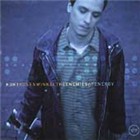Home » Jazz Articles » Album Review » Kurt Rosenwinkel: The Enemies of Energy
Kurt Rosenwinkel: The Enemies of Energy
Rosenwinkel has done quite a bit since then. During his recent four-day stint at New York's Jazz Standard, many of the compositions he played were new. Yet his regular working band, the one that appears on the record, was present and accounted for—save for drummer Jeff Ballard, who was replaced by the able Eric McPherson. To hear the Rosenwinkel group live is to witness the awe-inspiring passion and continual growth of enourmously talented musical soulmates. To hear the group on record is to hear that passion muted ever so slightly.
Joining Rosenwinkel, Ballard, bassist Ben Street, and brilliant tenorist Mark Turner on The Enemies of Energy is keyboardist Scott Kinsey, a longtime Scott Henderson associate. Kinsey's synth work contributes a fusion-esque feel and tilts the record toward overproduction. The same could be said for Rosenwinkel's many guitar overdubs. For instance, on "Dream of the Old," the album's best cut, Rosenwinkel layers the melody over an acoustic guitar rhythm track. In contrast, when he plays this beautiful song live at the Standard, the melody stands alone, punctuated deftly by chord voicings that anchor important passages and fill the empty spaces. The melody sounds hipper without a separate harmonic bed. And the whole song speaks with far greater immediacy and urgency.
Rosenwinkel's music lends itself to that kind of live immediacy, and The Enemies of Energy is in no way a live-sounding piece of work. Its flaws aside, however, the album continues to grow on this reviewer with repeated listenings. Highlights include the 6/4 funk of "Grant," which Ballard and Street romp all over; the rapid modulations of "Cubism," perhaps a contemporary answer to Coltrane's "Giant Steps"; the ethereal, relaxed "Number Ten," which bears faint traces of Scott Henderson's Tribal Tech; the medium fast swing of "Synthetics"; and Rosenwinkel's fuzztone solo on the final track, "Hope and Fear." Credit must also go to Rosenwinkel for taking a chance on "The Polish Song," a marvelously weird track that finds the guitarist singing falsetto in some imaginary language—he says he thinks it "might be Polish."
None of these tunes are constructed as mere blowing vehicles. Solos are often brief, framed by arranged ensemble passages. There's barely any improvisation at all on the opening title track, as well as on "Hope and Fear." The format that predominates on so many jazz recordings—head, solo rotation, head, out—is seldom heard on this one. Rosenwinkel's intention was to make music that transcended the ordinary parameters of jazz, and he's certainly succeeded.
Tracks: 1. The Enemies of Energy 2. Grant 3. Cubism 4. Number Ten 5. The Polish Song 6. Point of View 7. Christmas Song 8. Dream of the Old 9. Synthetics 10. Hope and Fear.
Track Listing
The Enemies of Energy; Grant; Cubism ; Number Ten; The Polish Song; Point of View; Christmas Song; Dream of the Old; Synthetics; Hope and Fear.
Personnel
Kurt Rosenwinkel
guitarKurt Rosenwinkel: electric and acoustic guitars, 4-string stella, voice; Mark Turner: tenor saxophone; Scott Kinsey: piano, keyboards; Ben Street: bass; Jeff Ballard: drums.
Album information
Title: The Enemies Of Energy | Year Released: 2000 | Record Label: Verve Music Group
< Previous
Ron Carter: Brazilian Charm
Next >
Ipsis Quest
Comments
About Kurt Rosenwinkel
Instrument: Guitar
Related Articles | Concerts | Albums | Photos | Similar ToTags
Concerts
For the Love of Jazz
 All About Jazz has been a pillar of jazz since 1995, championing it as an art form and, more importantly, supporting the musicians who create it. Our enduring commitment has made "AAJ" one of the most culturally important websites of its kind, read by hundreds of thousands of fans, musicians and industry figures every month.
All About Jazz has been a pillar of jazz since 1995, championing it as an art form and, more importantly, supporting the musicians who create it. Our enduring commitment has made "AAJ" one of the most culturally important websites of its kind, read by hundreds of thousands of fans, musicians and industry figures every month.




















